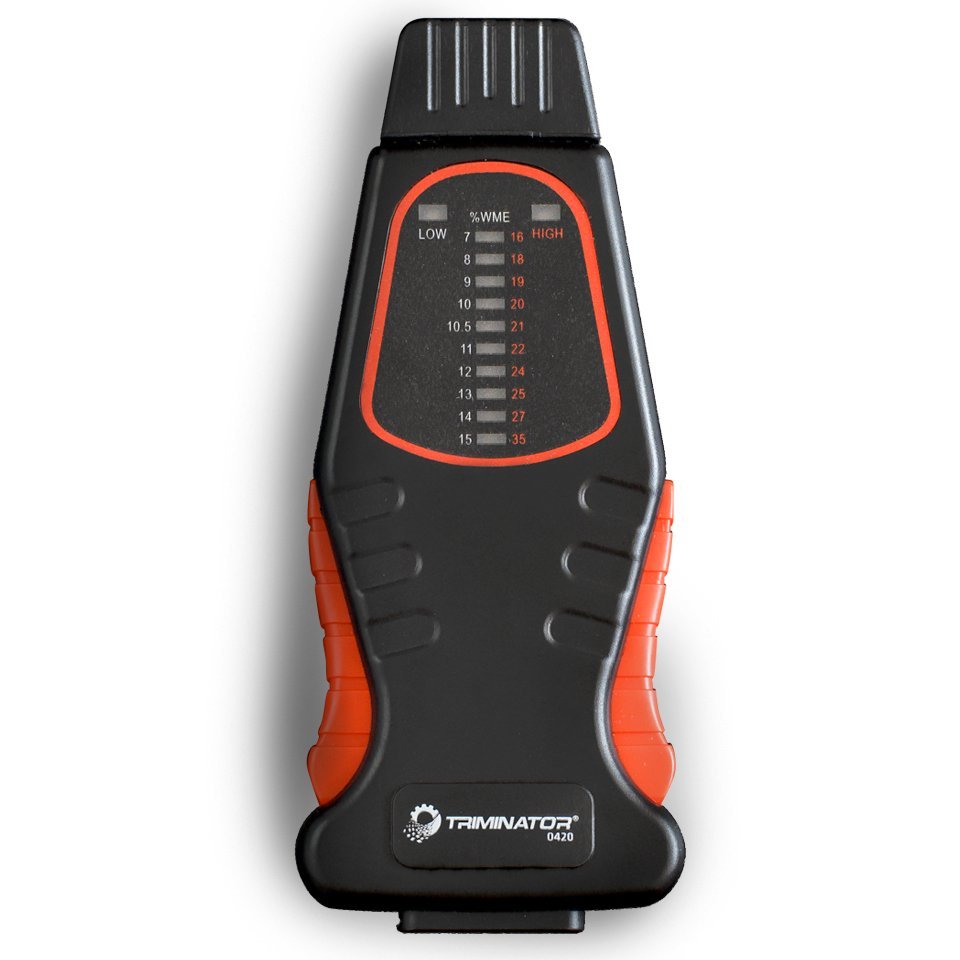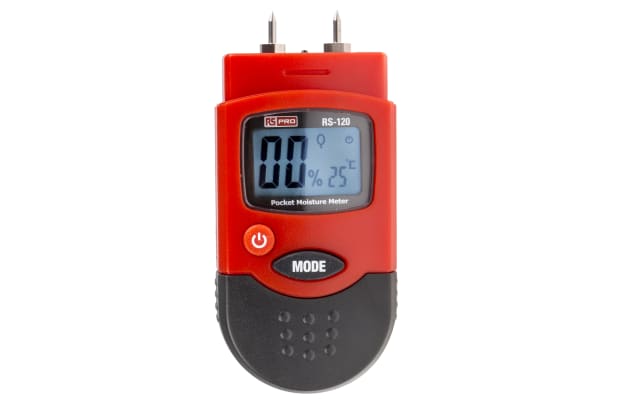Comprehending the Different Sorts Of Moisture Meters and Their Applications
Comprehending the Different Sorts Of Moisture Meters and Their Applications
Blog Article
The Ultimate Guide to Dampness Meters: A Comprehensive Introduction and How They Can Conserve You Money
Dampness meters offer as essential tools in finding and keeping an eye on moisture material in materials, aiding in avoiding pricey problems and guaranteeing the top quality of items. Comprehending the subtleties of different types of dampness meters, their applications, and the prospective cost-saving benefits they provide can be a game-changer for professionals and organizations alike.
Kinds Of Dampness Meters
One common type is the pin-type moisture meter, which determines the electric resistance between 2 pins inserted into a material. Pinless moisture meters, on the other hand, usage electromagnetic sensor plates to check a larger area without causing damages to the product's surface area.

Additionally, there are likewise specialized wetness meters made for details products like dirt, hay, or grain. These meters provide exact moisture readings customized to the one-of-a-kind buildings of the material being tested. Infrared dampness meters determine the thermal properties of a material to establish its wetness content non-invasively, making them valuable for applications where pin or pinless meters may not be ideal. Understanding the various types of wetness meters available can assist industries choose the most proper device for their details dampness measurement needs.

Advantages of Using Dampness Meters
Moisture meters provide invaluable benefits in properly analyzing and keeping an eye on moisture degrees in diverse materials and settings (Moisture Meter). Among the key benefits of using moisture meters is the prevention of possible damage brought on by excess moisture. By identifying and resolving high wetness levels early, wetness meters help to protect against mold and mildew development, rot, and structural damage in structures, conserving both money and time on repairs. In addition, wetness meters help in making certain the quality of materials during building or production processes. By properly measuring dampness material, these devices aid maintain the stability of wood, drywall, concrete, and other materials, reducing the threat of failures or issues.
Additionally, using wetness meters can result in boosted energy efficiency. By identifying locations with high moisture degrees, such as leaks or inadequate insulation, adjustments can be made to enhance power preservation and minimize utility costs. In farming setups, moisture meters play a critical duty in maximizing crop yields by enabling farmers to keep an eye on dirt wetness levels and make educated irrigation choices. Overall, the advantages of using dampness meters extend across various industries, offering cost-efficient remedies and promoting better top quality control methods.
Exactly How to Select the Right Wetness Meter
Choosing the appropriate moisture meter includes considering essential variables such as material compatibility, measurement range, and calibration accuracy. When selecting a moisture meter, it's necessary to make sure that the meter appropriates for the particular material you will be screening. Various products have differing electric residential properties that can affect wetness you could try here readings, so choosing a meter created for your product is vital for exact outcomes. In addition, think about the dimension series of the moisture meter. Ensure that the meter can find wetness levels within the range required for your applications. Calibration accuracy is an additional crucial variable to bear in mind. Select a dampness meter with trustworthy calibration to guarantee regular and specific analyses. Some meters may call for regular calibration changes, so comprehending the calibration procedure is necessary. By thoroughly reviewing these factors, you can choose a moisture meter that satisfies your needs and offers precise wetness measurements for your jobs.
Appropriate Strategies for Dampness Meter Use

Cost Financial Savings With Dampness Meter Applications
How can the critical application of dampness meters lead to significant expense financial savings throughout various markets? In the farming sector, moisture meters aid in figuring out the optimal time for harvesting crops, protecting against over-drying or excess dampness that can affect the last product's top quality.
Likewise, in building, moisture meters help prevent expensive damages by identifying moisture degrees in building products, such as timber or concrete, which can cause structural issues otherwise attended to promptly. By recognizing trouble areas early, service providers can take restorative steps to stay clear of extensive fixings or substitutes, eventually conserving money and time.
Furthermore, in the food processing sector, wetness meters are crucial for keeping track of product top quality and guaranteeing conformity with safety policies. By accurately gauging wetness web content in food, makers can prevent putridity, keep freshness, and decrease waste, resulting in learn this here now significant cost financial savings. Generally, the calculated application of moisture meters is an important financial investment that can bring about substantial cost decreases and enhanced effectiveness throughout various sectors.
Verdict
In conclusion, wetness meters are useful devices for discovering and determining wetness degrees in numerous materials. By utilizing the ideal dampness meter and adhering to appropriate techniques, users can successfully prevent pricey damages caused by excess wetness.
Moisture meters serve as indispensable devices in spotting and monitoring moisture content in products, assisting in stopping pricey damages and making sure the quality of products. Infrared wetness meters gauge the thermal properties of a product to identify its dampness web content non-invasively, making them valuable for applications where pin or pinless meters might not be appropriate.Moisture meters supply invaluable advantages in properly checking and assessing wetness levels in varied materials and environments. In agricultural setups, moisture meters play a critical role in maximizing plant yields by allowing farmers to monitor dirt dampness levels and make educated irrigation decisions.In verdict, wetness meters are valuable tools for detecting and gauging moisture degrees in various products.
Report this page